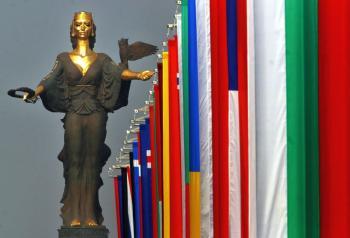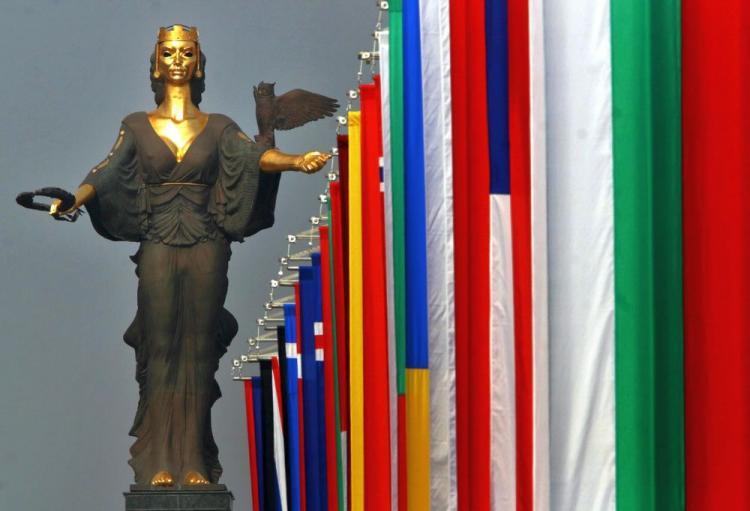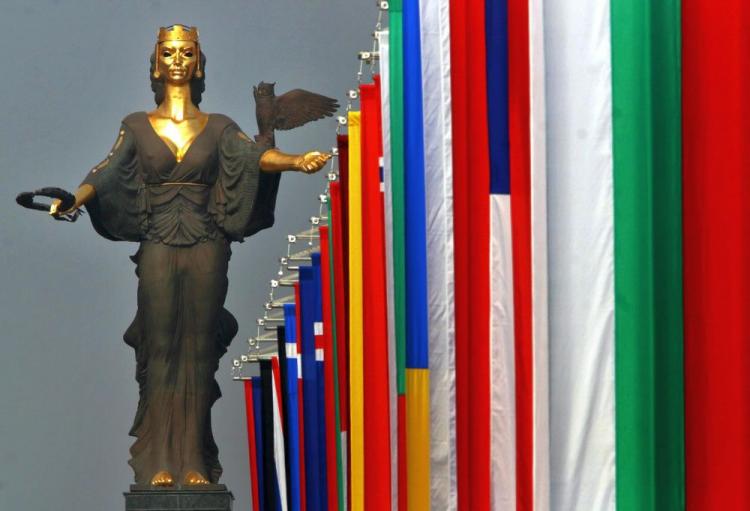Bulgaria Faces Russian Pressure Over U.S. Missile Shield
Plans for a U.S. missile defense shield in Eastern Europe continue to spark Russian opposition.

The flags of NATO member countries are raised in front of the statue of Saint Sofia in central Sofia, April 2, 2004. The U.S. plans to erect a missile defense shield in Eastern Europe to intercept missile attacks from Iran an Korea. Russia opposes the plan accusing the U.S. directing the sheild against it. Dimitar Dilkoff/AFP/Getty Images
|Updated:






